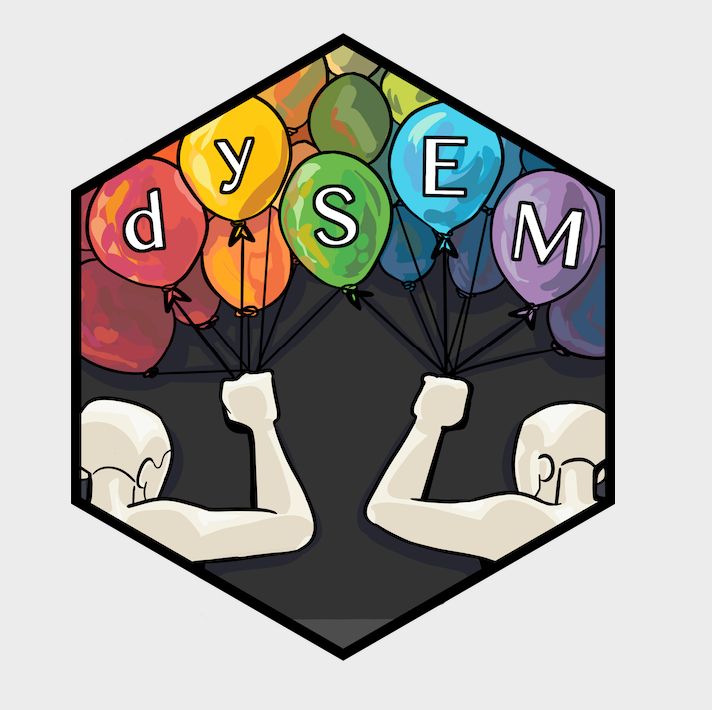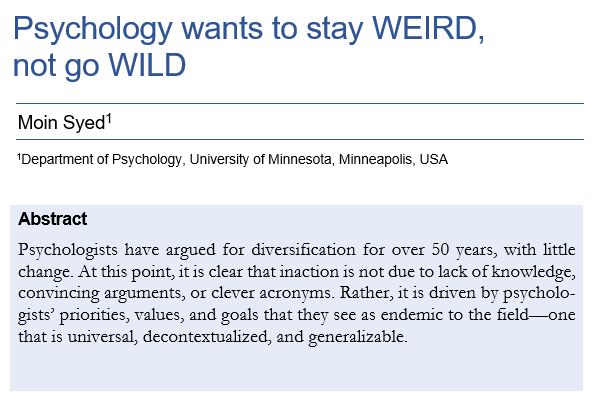Work: #rstats, #psychometrics, #dyadic data, #MetaAnalysis, #closerelationships, Sexuality
Fun: All things cured, fermented, roasted, seared, smoked, shaken, stirred, and swizzled.

Very excited (w/ @omarjcamanto.bsky.social) to share our preprint tutorial for using our R 📦 dySEM for #dyadic data analysis with latent variables, in cross-sectional data sets.
This paper has been literal years in the making, and provides three distinct tutorials.
osf.io/preprints/ps...
We installed a net at home; I'm getting a good amount of shots up when the whether is workable; and so far I'm pretty happy with the progress

We installed a net at home; I'm getting a good amount of shots up when the whether is workable; and so far I'm pretty happy with the progress
During my sabbatical, I have kept dreaming of an aggressive opt-out strategy. But will I...?

During my sabbatical, I have kept dreaming of an aggressive opt-out strategy. But will I...?
Read more in #SPPS: ow.ly/rVKJ50Xt6U4

Read more in #SPPS: ow.ly/rVKJ50Xt6U4
"Psychology wants to stay WEIRD, not go WILD"
Why hasn't psychology diversified it samples, methods, theories, etc.? Because it doesn't want to. osf.io/preprints/ps...

"Psychology wants to stay WEIRD, not go WILD"
Why hasn't psychology diversified it samples, methods, theories, etc.? Because it doesn't want to. osf.io/preprints/ps...
I.e. Whether you are working with a line manager or mentor who hands down opportunities. Coauthorships on papers. Coapplicants on grant.
If you're not being given these, you MUST move.
I.e. Whether you are working with a line manager or mentor who hands down opportunities. Coauthorships on papers. Coapplicants on grant.
If you're not being given these, you MUST move.
If you are interested in data freelancing, these resources may help you navigate that transition.
github.com/Cghlewis/fre...

If you are interested in data freelancing, these resources may help you navigate that transition.
github.com/Cghlewis/fre...

link.springer.com/article/10.3...

link.springer.com/article/10.3...

The first is that, though the credibility discourse has brought a lot of attention to theory, a lot of its arguments and tools (incl. one's I've used) lean heavily into dustbowl empiricism.
datacolada.org/129
The first is that, though the credibility discourse has brought a lot of attention to theory, a lot of its arguments and tools (incl. one's I've used) lean heavily into dustbowl empiricism.
anniemueller.com/posts/how-i-...

anniemueller.com/posts/how-i-...
anniemueller.com/posts/how-i-...

arxiv.org/abs/2509.11741
It is not formally linked to the {tidyverse}, bit affinity is obvious.
The paper does a solid job in describing the simulation workflow, could be useful for intros to simulation

arxiv.org/abs/2509.11741
It is not formally linked to the {tidyverse}, bit affinity is obvious.
The paper does a solid job in describing the simulation workflow, could be useful for intros to simulation
Really earning my vote next time around.
www.ctvnews.ca/canada/artic...

Really earning my vote next time around.
www.ctvnews.ca/canada/artic...
#databs #rstats
#databs #rstats

Then we have the R package for you - squidSim!!
Check our new preprint:
ecoevorxiv.org/repository/v...
Then we have the R package for you - squidSim!!
Check our new preprint:
ecoevorxiv.org/repository/v...


